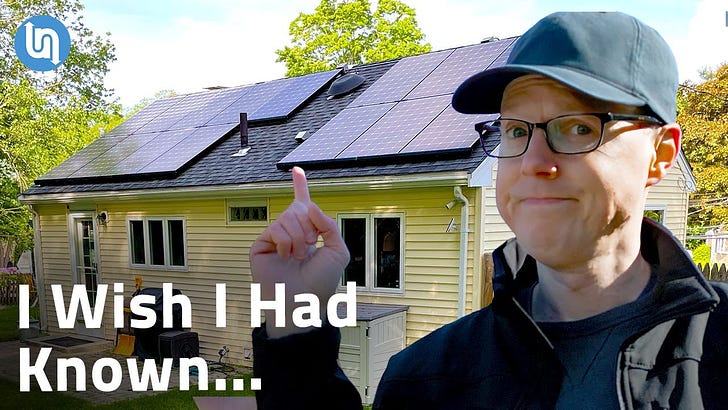Solar Panels & Rising Electricity Costs
YouTuber Matt Ferrell's 5-year experience owning solar panels offers valuable insights for cost-conscious homeowners amidst rising electricity prices.
YouTuber Matt Ferrell shares his experience after installing solar panels & a battery system in his home, & provides some valuable insights & advice for those interested in doing the same. Matt provides specific data & costs related to his system, including his home’s total energy consumption in 2022, which was 12.6 MWh, & the savings they achieved through the use of solar panels & a Tesla Powerwall battery. He estimates they saved approximately $2,285 in 2022, resulting in total savings of nearly $7,000 over the last five years. Furthermore, Matt estimates that due to the significant increases in utility-based electricity costs of nearly 40% since 2020, his solar system will work itself off in 2 more years or 7 years since installation.
Mr. Ferrell also emphasizes the importance of choosing the right professionals to install solar panels & batteries. Additionally, he highlights the potential danger of snow avalanches from solar panels, which could occur due to the slick surface of the panels causing snow to slide off quickly. The speaker's experience highlights the potential cost savings & benefits of solar panels & battery backup systems but also underscores the need for careful research & selection of installers.
In the second part of the video, Matt discusses the rising cost of electricity in Massachusetts, which is 35% higher than the national average since he installed his system in 2015. While the solar panel system has helped him save money on his electricity bills, the rising electricity costs have offset some of those savings. However, the state's net metering program, which allows solar panel owners to sell excess electricity back to the grid, has been useful in significantly offsetting these rising costs.
Due to the rising costs in Massachusetts, Matt Ferrell is more optimistic than ever about the benefits of solar power. He notes that there are a variety of incentives available to help homeowners switch to solar power, including federal tax credits & state-level rebates. His experience highlights the need to consider not only the upfront costs of installing a solar panel system but also the long-term savings & potential benefits. As electricity costs continue to increase, solar power is likely to become a more attractive option for homeowners seeking to save money on their bills while offering peace of mind & energy independence.




